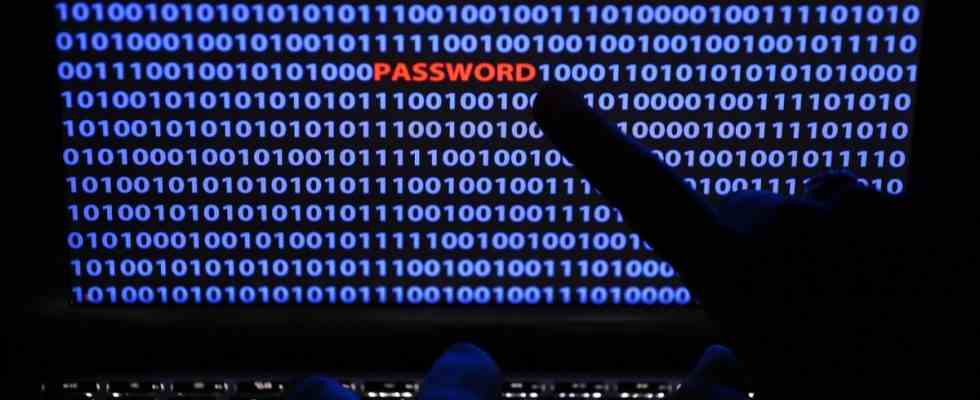It is part of the job description of an intelligence officer to assess dangers as realistically as possible. Sinan Selen, Vice-President of the Federal Office for the Protection of the Constitution (BfV), says: “Intelligence officials don’t tend towards superlatives.” Only his postscript can give cause for concern: “But in view of the current security situation…” The world, he says, is in turmoil: Russia’s war of aggression against Ukraine, China’s threatening gestures against Taiwan, the unconditional striving for world power by the regime in Beijing. All of this also has consequences for Germany, inevitably, in a thoroughly globalized world.
“The world in turmoil” is also the title of the security conference that the BfV is holding together with the Alliance for Security in Business (ASW) this Thursday in a glass-roofed conference room at the Brandenburg Gate in Berlin. In addition to monitoring extremists, the BfV is also responsible for economic protection and counter-espionage. It is an exchange between companies and security authorities that seems more urgent than it has been for a long time.
“The threat situation is comprehensive, it is very intense”
At the end of September 2022, the Nord Stream 1 and 2 pipelines exploded on the bottom of the Baltic Sea. Two weeks later, cables on railway lines were severed, and train traffic in northern Germany came to a standstill for hours. Then there’s Russia’s major invasion on February 24, 2022, in the wake of which it became clear that dependence on Russian gas had colossal downsides. The end of the deliveries led to moderate panic and to the fact that large parts of the population are now familiar with the word “gas shortage”. Some people have also realized that the huge dependence of many key sectors of the German economy on autocratic and, above all, self-interested China can, in the worst case, become catastrophic.
Recent experiences show: Germany’s critical infrastructure, Germany’s economy as a whole is vulnerable. On the podium in Berlin, constitutional protection officer Sinan Selen no longer speaks of the trading partners Russia and China, he speaks of “our opponents”. Primarily (geo-)political, but that cannot be separated from the rest, because these “opponents” waged their fight with all means: “The system competition takes place to a large extent in the areas of economy, science and research”, says Selenium. And turned to the dozens of business representatives present: “You are the object of desire for powerful players.”
It’s about espionage, hacker attacks, acts of sabotage, the whole range of secret service weapons. Or a possible war that just takes a huge market off the map. What if China attacks Taiwan and sanctions make trade impossible? Volker Wagner also sees these dangers. In his main job at BASF, he is responsible for corporate security, and he is also Chairman of the Board of the Security Association ASW, which includes large companies such as Mercedes-Benz and Lidl, as well as universities. Wagner says: “The threat is comprehensive, it is very intense.”
Even the last politician and the last CEO in Germany have now recognized this. Or? The Office for the Protection of the Constitution, Selen, has his doubts. Straight reported the Reuters news agencythat Deutsche Bahn, after all a quasi-state-owned company, placed an order in December for a major update of the company’s internal IT infrastructure – in which technology from the Chinese company Huawei is to be used. Selen does not want to evaluate the specific case yet, but: “We are talking about a company that cannot escape state influence.” This means that if the technology is suitable for tapping data, the regime in Beijing has access to it if necessary. These consequences are obviously not clear to every decision-maker in Germany. “I don’t have the impression that the crown jewels of our economy are protected well enough,” says Selen.
The federal government is planning an “umbrella law”
Christian Mölling from the German Council on Foreign Relations, invited as a guest speaker, says that it is not forbidden to rely on Chinese technology or, as large German car companies continue to do, on China as the largest sales market. But at least negligently. In the case of Russia, Germany “has already driven the cart against the wall.” And with China? “If we drive this cart into a wall, God have mercy on us.”
The solution, everyone says today, is not to simply pull out of a market like China. But to protect yourself. Finding other suppliers for raw materials, opening up other sales markets. And if you already have production facilities in China, says ASW boss Wagner, they should at least have an IT network that is not directly docked to the German corporate headquarters. Companies and universities would also have to control more closely who works for them and who goes in and out – according to the protection of the constitution, China and Russia are again relying more on spies.
In order to better protect at least the critical, i.e. vital infrastructure (critis) in Germany, the federal government is also planning a “crisis umbrella law”, which the Greens in particular have been pushing for for a long time. It is intended for the first time nationwide to regulate how physical infrastructure is to be protected. Pipelines and railway lines, for example. Very concrete ideas are not yet known, only vague “key points”. The Federal Ministry of the Interior wants to have the draft ready before the summer break, they say. Some in the Bundestag consider this to be quite ambitious. It may take a while.

